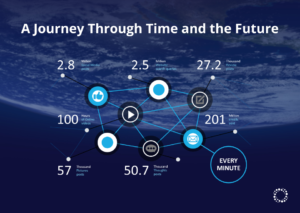In recent years, artificial intelligence (AI) has emerged as a transformative force across various industries, and B2B commerce is no exception. The integration of AI technologies into B2B processes has brought about significant changes, revolutionizing the way businesses operate, interact, and transact with each other. From enhancing operational efficiency to improving customer experiences, AI is reshaping the landscape of B2B commerce in numerous ways.
- Personalized Customer Experiences: One of the most profound impacts of AI in B2B commerce is the ability to deliver personalized customer experiences. AI-powered recommendation engines analyze vast amounts of data to understand customer preferences, behaviors, and purchasing patterns. This allows B2B businesses to tailor product recommendations, pricing strategies, and marketing messages to individual clients, ultimately driving higher conversion rates and customer satisfaction.
- Predictive Analytics and Demand Forecasting: AI algorithms enable B2B companies to harness the power of predictive analytics for demand forecasting. By analyzing historical data, market trends, and external factors, AI systems can accurately predict future demand for products and services. This empowers businesses to optimize inventory management, anticipate customer needs, and make data-driven decisions to stay ahead of the competition.
- Streamlined Supply Chain Management: AI plays a crucial role in streamlining supply chain management processes for B2B commerce. Machine learning algorithms optimize logistics, inventory replenishment, and distribution routes, minimizing costs and maximizing efficiency. Predictive maintenance powered by AI helps prevent equipment failures and downtime, ensuring smooth operations throughout the supply chain.
- Enhanced Fraud Detection and Security: With the rise of online B2B transactions, cybersecurity has become a paramount concern for businesses. AI-powered fraud detection systems employ advanced machine learning techniques to identify suspicious activities and fraudulent transactions in real-time. By analyzing multiple data points and detecting anomalies, AI enhances security measures, safeguarding sensitive information and financial transactions.
- Intelligent Chatbots and Virtual Assistants: AI-driven chatbots and virtual assistants are transforming customer support and service in B2B commerce. These intelligent systems use natural language processing (NLP) and machine learning algorithms to understand customer inquiries, provide instant responses, and resolve issues efficiently. By offering round-the-clock assistance and automating routine tasks, chatbots enhance customer engagement and satisfaction.
- Optimized Pricing Strategies: AI algorithms empower B2B companies to optimize pricing strategies based on dynamic market conditions, competitor pricing, and customer segmentation. Through price optimization techniques, businesses can set competitive prices, maximize profitability, and capitalize on revenue opportunities. Dynamic pricing powered by AI ensures flexibility and agility in responding to changes in demand and market dynamics.
- Data-driven Decision Making: AI-driven analytics and business intelligence tools enable B2B businesses to make data-driven decisions with confidence. By processing and analyzing vast datasets, AI systems uncover valuable insights, trends, and correlations that human analysts may overlook. These insights inform strategic planning, product development, and marketing initiatives, driving business growth and competitiveness.
In conclusion, the impact of artificial intelligence on B2B commerce is profound and multifaceted. From personalized customer experiences to streamlined supply chain management, AI technologies are revolutionizing the way B2B businesses operate and interact in the digital age. As AI continues to evolve and innovate, its role in shaping the future of B2B commerce will only become more pronounced, offering new opportunities for growth, efficiency, and innovation.





